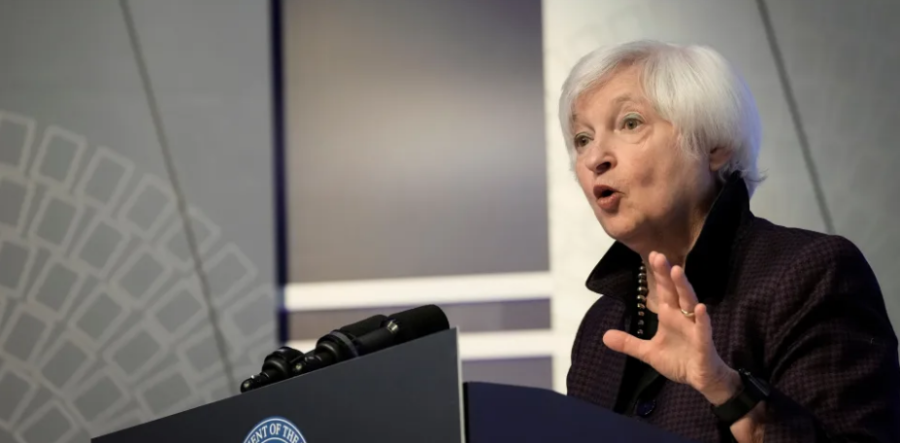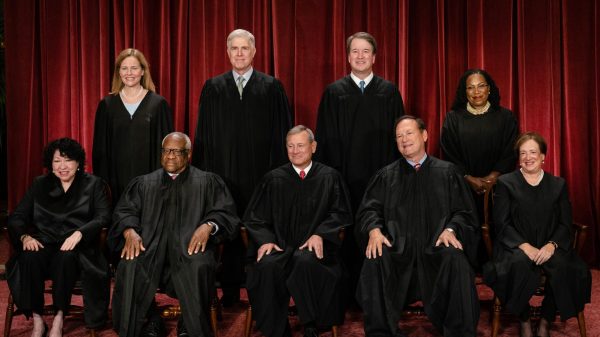The U.S. approaches possible debt default
The U.S. faces the risk of being unable to pay back its $31.4 trillion debt next month.
This is because the United States has reached its debt ceiling, which means it has reached the maximum amount of money ($31.4 trillion) it can borrow to fund public services such as Social Security, Medicare, tax refunds, and military salaries.
The current debt can be broken down into 63 percent put towards mandatory spending programs such as Medicare and Social Security, and 30 percent open to lawmaker decisions.
In the past years, the government has increased spending on Covid-19, wars in Afghanistan and Iraq, the elderly, and public works. This increased spending coupled with tax cuts put in place by former President George W. Bush, President Barack Obama, and President Donald Trump, set the stage for the debt crises.
U.S. Treasury Secretary, Janet Yellen, warned if this trend of high government spending and low tax revenue continues, the country could reach debt default, or run out of money, by June 1.
“This would be a huge hit to the economy and really an economic catastrophe,” said Yellen in an interview with CNBC. “If Congress doesn’t raise the debt ceiling, [President Joe Biden] will have to make some decisions about what to do with the resources we do have. There are a variety of different options, but there are no good options. Every option is a bad option.”
One possible suggestion Republican lawmakers made to avoid debt default was to reduce government spending and increase the debt ceiling.
Speaker of the House, Kevin McCarthy, introduced the Limit, Save, Grow, Act of 2023, which was passed by the House. If passed by the Senate, the bill would increase the debt ceiling by $1.5 trillion, cut government spending by $4.5 trillion, increase public welfare work requirements, ban student loan-forgiveness programs, and reduce pandemic spending.
This however has been opposed by Democratic lawmakers, the Democratic-majority Senate, and President Biden who believe the spending cuts would unfairly target the poor.
“While taking the full faith and credit of the United States hostage is irresponsible under any circumstances, this legislation would ask hard-working Americans, the middle-class, seniors, children, and people with disabilities to shoulder the burden of devastating cuts, while doing nothing to ensure wealthy or large corporations pay their fair share,” stated the White House Office of Management and Budget (OMB)
Instead of cutting government spending, President Joe Biden and the White House, Treasury, and Justice Department officials are considering using the 14 Amendment to rule the debt ceiling as unconstitutional.
The 14 Amendment states, “the validity of the public debt of the United States, authorized by law, including debts incurred for payment of pensions and bounties for services in suppressing insurrection or rebellion, shall not be questioned.”
Experts suggest this could possibly branch out to include the current situation of the debt default, making the ceiling unenforceable.
Another viewpoint expressed by economists is having the Treasury Department make a trillion-dollar coin in order to help reduce debts. This would be created by using a normal platinum coin and giving it a value of $1 trillion.
This, however, was opposed by Biden and Yellen who worried it would cause economic disorder.
If the government fails to decide by June 1 and pay back the debt, it could force the U.S. to rely on tax revenue and emergency accounts.
This would downgrade U.S. credit ratings and leave many government workers unemployed.
“Social Security recipients, veterans, U.S. military employees, government employees, defense contractors, among others, would likely go unpaid,” said John Lynch, chief investment officer for Comerica Wealth Management. “The downstream effects of job losses and freezing of the credit markets would be a multiple-quarter negative hit to [the Gross Domestic Product (GDP)], making a deeper recession all but certain.”
Furthermore, it could also cause a spike in interest rates for credit cards, mortgages, and loans and cause stock prices to drop.
With major political party disagreements between Republican and Democratic lawmakers, it still remains a mystery how the United States will mitigate the debt ceiling and default issue.






